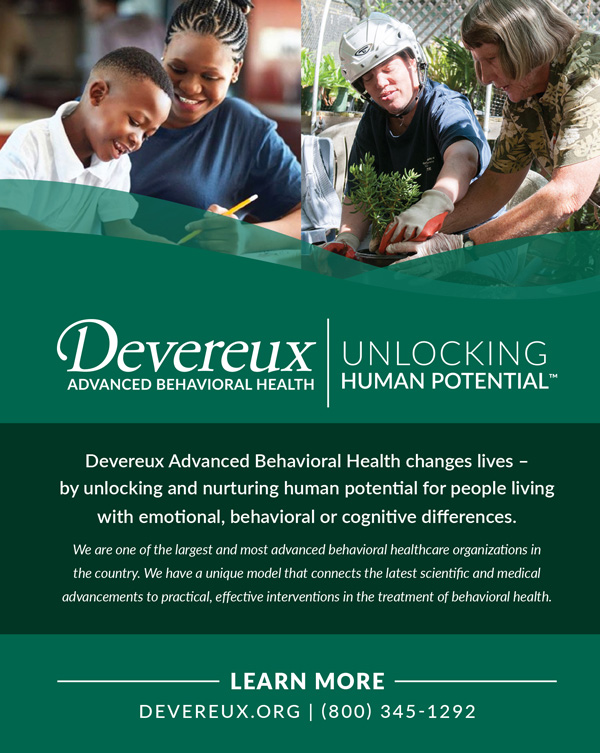Historically, the term “recovery” was commonly associated with substance use/addiction services and was popularized in the United States through Alcoholics Anonymous (AA) (Witkiewitz, K., et al., 2020). Beginning in 1939, AA published materials highlighting recovery as a personal journey toward not only abstinence, but also increased well-being and overall functioning. As psychiatric care in the U.S. became deinstitutionalized in the 1970s and 1980s, definitions of recovery for psychiatric illnesses became more common.

Over the last decade, researchers and behavioral health providers have moved toward an integrated definition of recovery that includes mental health and substance use, and they are prioritizing recovery as an essential focus of care. The Recovery Science Research Collaborative published a study in 2019 defining recovery as, “an individualized, intentional, dynamic, and relational process involving sustained efforts to improve wellness (Ashford, R.D., et al., 2019, p. 5).”
The Substance Use and Mental Health Services Administration (SAMHSA) also has moved toward a standard definition of recovery that encompasses substance use and mental health as “a process of change through which individuals improve their health and wellness, live a self-directed life, and strive to reach their full potential (SAMHSA, p.3).” SAMHSA’s definition also includes four principles that are important factors for successful recovery:
- Health (emotional, physical)
- Home (adequate housing)
- Purpose (engaging in daily activities/having resources to be productive)
- Community (supportive social/familial relationships)
Individual-Centered Approaches
In the past, treatment-oriented/medical models of care focused on the individual and symptom reduction but did not address the process for increasing overall well-being and functioning in society (Jacob, 2015).
Today, recovery-oriented models of care focus on the individual and their treatment, while also prioritizing the role of family/caregiver involvement in treatment and the ongoing work outside of treatment needed to function in all areas of life. Devereux Advanced Behavioral Health’s Philosophy of Care integrates the core principles of individual-centered and recovery-oriented approaches, while also focusing on the utilization of the most current and effective evidenced-based treatments (EBTs). Considered the gold standard of behavioral health treatment delivery, EBTs were developed in the 1990s (Cho, et al., 2019), and are now widely implemented across all levels of care for use with children and adolescents to address specific behavioral health challenges. The reason: Children and adolescents are at unique stages in their psychosocial development that require specific considerations for their treatment and recovery in order to meet the individual and caregiver’s needs.
Utilizing EBTs for Our Youth
When determining the use of EBTs for children and adolescents, best practice considerations emerge in the research. Special attention should be given to ensuring a well-rounded diagnostic evaluation is completed (Lee, et al., 2021). In a study by Lee, et al. (2021), research showed that providing an EBT appropriate for a child’s primary diagnosis revealed the most robust improvement in treatment outcomes and clinician/caregiver’s perception of symptom improvement, highlighting the need for thorough and accurate diagnosis when initiating treatment (p.8).
While it is common practice for an individual to receive a diagnosis upon completion of an initial clinical assessment, it is imperative that providers reassess this diagnosis to ensure an individual receives the most effective treatment available. In addition, research shows a strong correlation between increased caregiver involvement with an EBT and improved treatment outcomes for youth (Okamura, et al., 2020).
In a study related to delivery of trauma-focused cognitive behavioral therapy, youth and their caregivers reported improvements in communication, validation and family functioning (Okamura, et al., 2020). It also was noted that too much emphasis on using EBT-specific language was a turn-off for caregivers, underscoring the importance of providers delivering treatments in authentic ways, free of professional jargon (Okamura, et al., 2020). In addition, the use of empirically validated outcome measures allow for increased understanding of progress in treatment.
DBT Revisits the “Life Worth Living Goal”
Dialectical behavior therapy (DBT) is one of Devereux’s most widely used EBTs and is implemented across the country in a variety of settings including residential treatment facilities, outpatient and acute hospital settings.
While traditional treatment-oriented models of care focus on symptoms and their presentation, DBT revisits the concept of an individual’s “life worth living goal,” which, essentially, is the vision of creating a life that is no longer compatible with the idea of suicide or other high target behaviors. The “life worth living goal” looks at living a life of balance (Linehan, 1993, p. 124).
Comprehensive DBT includes coaching as an intervention that assists with living a more balanced life. Through frequent access to DBT therapists, individuals can receive coaching for in-the-moment support to engage in more skillful behavior, generalize skills and improve quality of life. In a traditional recovery-oriented model, coaching may be akin to a recovery coach or to an AA sponsor. Coaching marries recovery/treatment models, allowing for both change and acceptance of one’s behaviors, while also focusing interventions to reduce symptoms and ineffective behaviors.
DBT via Telehealth
As the COVID-19 pandemic escalated in the U.S. in March 2020, Devereux worked swiftly to provide individual and group telehealth sessions for many programs, including DBT.
Through the use of telehealth, Devereux’s clinicians were able to engage with individuals and caregivers without the barriers of transportation or demanding schedules. The availability and access of both families and clinicians increased as telehealth offered more flexibility. In addition, the Office of Mental Health and Substance Abuse Services published updated best practices on the delivery of services via telehealth to assist clinicians in providing the most effective level of involvement.
Taking special consideration for the numerous challenges people with mental health challenges faced as a result of the pandemic, providing telehealth services also increased Devereux’s geographical access to the most vulnerable populations who otherwise might not have had access to DBT in their local communities. This train of thought is known as highlighting the dialectic (Linehan,1993). It is of value to note that while individuals of color are widely known to have less access to EBTs, these individuals continue to have statistically significant treatment outcomes when offered an EBT (Lee et al., 2021). Providing opportunities for underserved families to engage in an EBT through telehealth is an important, future consideration of behavioral health treatment providers.
Fidelity is Key
Devereux’s process for the implementation of evidence-based practices is helpful to ensure treatments are conducted to fidelity. In addition to regular integrity and fidelity monitoring, Devereux also utilizes HIPAA-compliant technology to record and display daily behavior data for individuals in the organization’s care. This is used by treatment team members to customize treatment/recovery goals and therapeutic strategies to meet the unique needs of each child/family. Access to real-time behavioral data also serves as consistent outcome data, which can allow for more targeted and accurate teaching/coaching of the skills necessary for successful recovery.
In conclusion, best practices in the behavioral health field promote an integrated system of care that prioritizes the use of EBTs, while also delivering services and resources necessary for empowering individuals and families during recovery.
Special considerations are needed when treating children and families/caregivers within this structure to ensure thorough and ongoing diagnostic assessment, consistent caregiver engagement with EBTs, and accessible services to underserved populations.
While all EBTs are considered gold standards for care, thought should be given to EBTs that focus on the generalization of skills outside the treatment setting to support recovery goals and principles. Systems for monitoring fidelity to EBTs contribute to recovery by ensuring a high quality of care is met and providing data that can assist with targeted interventions to support individuals, caregivers and stakeholders with the recovery process.
Devereux Advanced Behavioral Health is one of the nation’s largest nonprofit organizations providing services, insight and leadership in the evolving field of behavioral healthcare. Founded in 1912 by special education pioneer Helena Devereux, the organization operates a comprehensive network of clinical, therapeutic, educational, and employment programs and services that positively impact the lives of tens of thousands of children, adults – and their families – every year. Focused on clinical advances emerging from a new understanding of the brain, its unique approach combines evidence-based interventions with compassionate family engagement.
Devereux is a recognized partner for families, schools and communities, serving many of our country’s most vulnerable populations in the areas of autism, intellectual and developmental disabilities, specialty mental health, education and child welfare. For more than a century, Devereux Advanced Behavioral Health has been guided by a simple and enduring mission: To change lives by unlocking and nurturing human potential for people living with emotional, behavioral or cognitive differences. Learn more: www.devereux.org.
Crystal Taylor-Dietz, PsyD, is National Director of Behavioral Health Services at Devereux Advanced Behavioral Health. Molly Stubbs, LPC, is Clinical Supervisor, Devereux Pennsylvania Children’s Behavioral Health Services Outpatient Center.
For more information on Devereux Advanced Behavioral Health, visit www.devereux.org.
References
Ashford RD, Brown A, Brown T, et al. Defining and operationalizing the phenomena of recovery: A working definition from the Recovery Science Research Collaborative. Addict Res Theory. 2019;27(3):179–188. doi: 10.1080/16066359.2018.1515352. [CrossRef] [Google Scholar]
Cho, E., Wood, P. K., Taylor, E. K., Hausman, E. M., Andrews, J. H., & Hawley, K. M. (2019). Evidence-based treatment strategies in youth mental health services: Results from a national survey of providers. Administrative Policy of Mental Health, 46(1), 71-81. https://doi:10.1007/s10488-018-0896-4.
Jacob K. S. (2015). Recovery model of mental illness: a complementary approach to psychiatric care. Indian journal of psychological medicine, 37(2), 117–119. https://doi.org/10.4103/0253-7176.155605
Lang, J. M., Lee, P., Connell, C. M., Marshall, T., & Vanderploeg, J. J. (2021). Outcomes, evidence-based treatments, and disaparities in a statewide outpatient children’s behavioral health system. Children and Youth Services Review, 120: 1-12.
Lee, P., Lang, J. M., Vanderploeg, J. J., & Marshall, T. (2021). Evidence-Based Treatments in Community Mental Health Settings: Use and Congruence With Children’s Primary Diagnosis and Comorbidity. Research on Child and Adolescent Psychopathology, 1-14.
Linehan, M. M. (1993). Cognitive-behavioral treatment of borderline personality disorder. Guilford Publications.
Okamura, K. H., Skriner, L. C., Becker-Haimes, E. M., Adams, D. R., Becker, S., Kratz, H. E., Beidas, R. S. (2020). Perceptions of Evidence-based Treatment among Youth and Caregivers Receiving Trauma Focused-Cognitive Behavioral Therapy. Journal of Child and Family Studies, 29: 1712-1722.
Substance Abuse and Mental Health Services Administration. SAMHSA’s Working Definition of Recover: 10 Guiding Principle of Recovery. HHS Publication No. PEP12-RECDEF. SAMHSA’s definition of recovery.pdf
Witkiewitz, K., Montes, K. S., Schwebel, F. J., & Tucker, J. A. (2020). What Is Recovery?. Alcohol research : current reviews, 40(3), 01. https://doi.org/10.35946/arcr.v40.3.01









